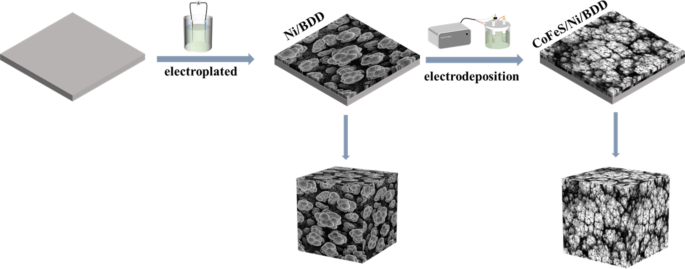Efficient Hydrogen Production through Seawater Electrolysis using Cobalt-Iron Sulfide/Nickel/Boron-Doped Diamond Electrodes
Key Ideas
- Hydrogen energy production from seawater electrolysis using cobalt-iron sulfide/nickel/BDD electrodes shows promising results with low overpotentials for both hydrogen evolution and oxygen evolution reactions.
- The study highlights the importance of catalysts in enhancing the efficiency and sustainability of hydrogen production through water electrolysis.
- Utilizing boron-doped diamond electrodes with cobalt-iron sulfide for seawater electrolysis can lead to significant advancements in renewable energy technologies.
- The research demonstrates the potential for developing more corrosion-resistant electrodes for industrial applications, paving the way for broader adoption of hydrogen as a clean energy source.
The article discusses research focused on improving hydrogen production through seawater electrolysis by developing efficient catalysts and materials for electrodes. It highlights the challenges in widespread adoption of hydrogen as a clean energy source and emphasizes the role of catalysts in reducing energy losses during water electrolysis. The study specifically focuses on modifying nickel foam substrates with Al-doped Ni3S2 and cobalt-iron sulfides to enhance the performance of the electrodes for hydrogen and oxygen evolution reactions. The corrosion resistance and catalytic activity of boron-doped diamond electrodes in complex environments, such as wastewater treatment and gas detection applications, are also explored. By combining cobalt-iron sulfide, nickel, and boron-doped diamond materials, the researchers were able to achieve low overpotentials for both hydrogen and oxygen evolution reactions, showing promising results for efficient hydrogen production. The experiments involved characterizing the crystal structure and morphology of the electrodes and testing their electrochemical properties using various methods. The study suggests that enhancing the corrosion resistance of electrodes through innovative materials like cobalt-iron sulfide could overcome challenges in industrial electrolysis applications, contributing to the sustainable production of hydrogen as a clean energy source.
Topics
Electrolyzer
Renewable Energy
Catalysts
Materials Science
Electrochemistry
Energy Production
Water Treatment
Electrodes
Latest News
